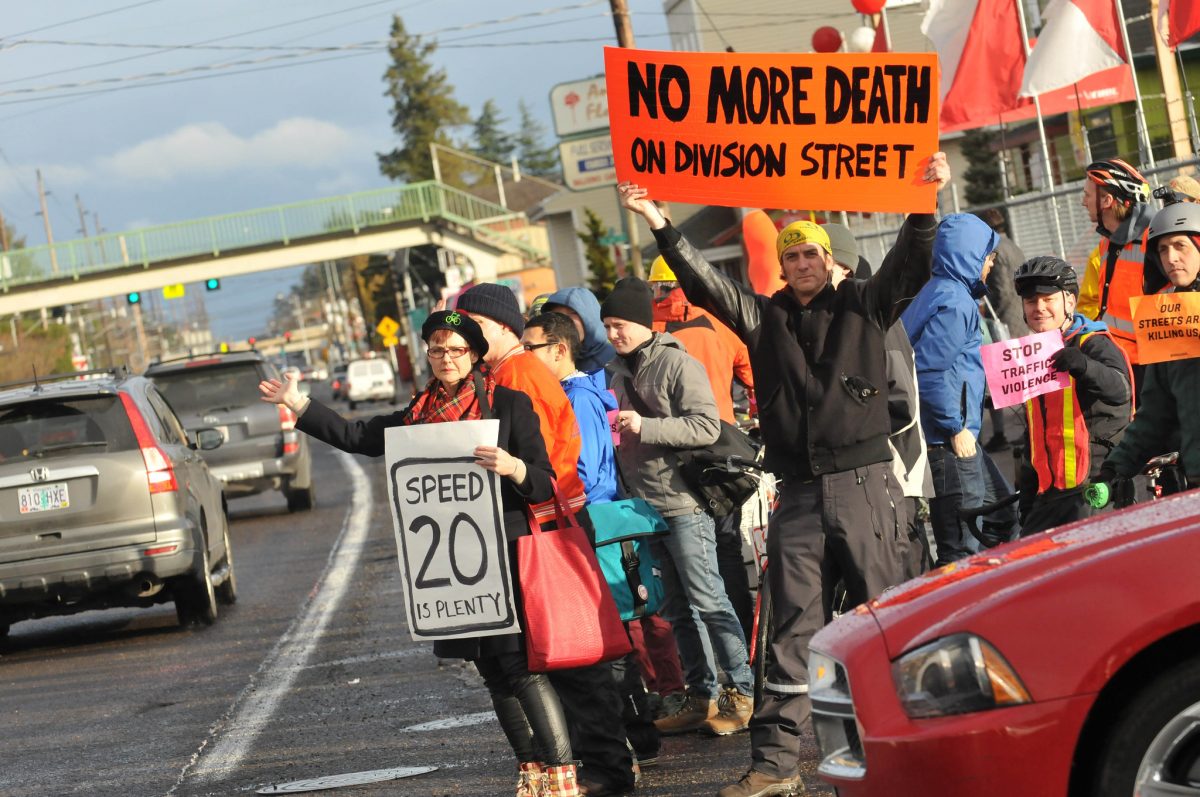
(Photos: J. Maus/BikePortland)
“Burnout is a way of telling you that your form of activism was perhaps not very full circle.”
– Gloria Steinem
Burnout is a part of activism that doesn’t get talked about often enough.
Ever since we celebrated the fourth anniversary of BikeLoudPDX (the all-volunteer activism group I co-chair) in August 2018, I began to feel conflicted about my bike activism. I still had moments of excitement and interest that had drawn me to the group and this kind of work in the first place, but I was feeling overwhelmed, unmotivated, and sometimes resentful and angry.
Watching projects be severely compromised due to factors beyond my control, or being told I would have to wait months or years to see changes in policy or in the streets didn’t help my feeling of hopelessness. I was, and am, tired.
What I was feeling is something every activist will experience: burnout. Burnout isn’t a medical diagnosis, but according to the Mayo Clinic, it’s “a type of…stress — a state of physical or emotional exhaustion that also involves a sense of reduced accomplishment and loss of personal identity.”
Burnout is a part of activism that doesn’t get talked about often enough. To shine light on the issue, I reached out to veteran activists. I was curious how they’ve dealt with it and wanted to know their coping strategies. I hoped to find inspiration, and if nothing else, commiseration.

(Photos: J. Maus/BikePortland)
I interviewed Portlanders who’ve been involved with various forms of advocacy and activism in either professional and/or volunteer capacities: Steph Routh, Portland Planning and Sustainability Commissioner; Vivian Satterfield, director of strategic partnerships at Verde; Doug Klotz, co-founder of Oregon Walks; and Sarah Iannarone, community organizer and current candidate for Portland mayor.
The interviews below were edited for length and clarity.
How did you get involved with activism, and how has that evolved over time?
Steph Routh: Since high school, I’ve been mostly involved with voter registration, fair elections, and transportation justice.
Doug Klotz: I started in pedestrian advocacy in 1987, shortly after I moved to Portland. I started advocating for better pedestrian facilities, met Ellen Vanderslice, and together we founded the Willamette Pedestrian Coalition (now Oregon Walks). Later, I realized that more compact, denser neighborhoods were necessary for walking to be feasible for many, and shifted my focus to land-use, [and] did that as Land-use Chair of Richmond Neighborhood Association. I have been active in PDX YIMBY (Yes in My Backyard) since, as well as the new group Inner Southeast Action.
Vivian Satterfield: I’ve always been interested in the intersection of racial, economic and environmental justice and have been fortunate to find myself working alongside others in this sweet spot of advocacy. The organizing of Bus Riders Unite by OPAL Environmental Justice Oregon activated my political spirit and the rest is, as they say, history.
Sarah Iannarone: I’ve always cared about vulnerable people from a young age. Working in food service early in my career, I saw worker exploitation first hard. And when I had my daughter, I changed – I wanted to build healthy good things, not negative things.
Have you experienced activist burnout?
“Where the people you’re trying to move will always have more resources (time, money, staff), it’s quite easy to feel despondent.”
— Vivian Satterfield
Steph Routh: Umm, yes. 🙂
Vivian Satterfield: Advocacy campaigns have their own emotional arcs and I find that even with the best planning and campaign mapping, there are still points in which one can feel burnt out. It doesn’t matter how long the campaign is time-wise, it’s the intellectual and emotional investment in the campaign which can be resource-intensive and quickly lead to burnout. I tend to take on a number of large areas of work at once and like the buzzing energy of managing people in coalitions and through campaigns, so the opportunity for burnout is certainly very high! Especially when the issues you’re taking on are always against institutional power, where the people you’re trying to move will always have more resources (time, money, staff), it’s quite easy to feel despondent.
Doug Klotz: Yes, I have at times become discouraged. With the pedestrian advocacy, I initially envisioned that sidewalks and crosswalks could be added to newer areas of the city, further from the core. It became obvious, though, the majority of streets would remain places where you walked in the street. All the standards for good sidewalks that we worked for were dismissed as too expensive, and worse and worse alternatives proposed. I was active during the Comprehensive Plan process, which I naively thought would actually add more density along transit streets. I have become cynical about the prospect of increasing density as well. And the increasing clarity that Climate Change is already happening, and that even radical action right now can only mitigate the damage already done, is disheartening.
Sarah Iannarone: I’ve been burned out twice; when oppression pressed down because of interpersonal conflict, and at work. When the systems of power are unbalanced, it wears you down. Beating those systems back wore me down.
What did you do (if anything) to address it?
Steph Routh: Well, I resigned as executive director of Oregon Walks after about 5 years, a decision prompted mostly by burnout. When the vast majority of one’s time and connections are focused on a specific goal or role, the other side of burnout can feel ambivalent, purposeless, and lonely (at least it was for me). It took significant time to gather myself again, which was frustrating and, frankly, depressing. I took a job that had little overlap with transportation advocacy and started rock climbing. Few things get you out of your head like trying to keep yourself from falling off a tall rock wall while dealing with your fear of heights!
Vivan Satterfield:
– Get to know yourself very well.
– Delegate, if you’re able, to others.
– Ask for help.
– Acknowledge that you’re unable to do it on your own and communicate to others when you’re feeling over-stretched.
– Create realistic work plans which allow for you to map out your long term goals with your current commitments.
Some things I do for the day-to-day management of my work flow to prevent burnout include:
– During the nice times of year, I’ll adjust my work schedule to allow myself to get in the activities I value for my mental health: lap swim with friends in the morning, or take a longer break in the middle of the day to go for a bike ride.
– I only try to work on no more than two or three different ‘topics’ per day.
– This may be controversial to some, but one way I tackle the seemingly bottomless pit of my e-mail inbox is that if the message is over 10 days old and unread, I archive it without reading it. In our high gear world of advocacy in which things can flare up and calm down so quickly, I find that working in coalition on advocacy issues that involve many organizers means that I’m rarely the only person whose eye is on the ball; if it’s something that I absolutely am the only person in the world who can respond to that message and there hasn’t been outreach to get my attention within 10 days, then it’s most likely resolved or wasn’t of high importance to begin with.
Doug Klotz: I guess my recipe for avoiding burnout now is to concentrate on individual land use cases across the city, especially affordable housing. Now that I’m retired, I can testify at Design Commission and Landmarks Commission, two groups that can be obstacles to getting housing built.
Sarah Iannarone: I find that when I make investments in my community, it makes me stronger, not weaker. The community is the full pitcher, and I’m the empty glass. Steadily serving others funds the common good.
Advertisement
What helps you avoid burnout?
Vivian Satterfield: Practice saying ‘no’! Another way of looking at this is: leadership comes in many forms, and sometimes saying ‘no’ allows for someone else to say ‘yes’.
Doug Klotz: Restoring the house my wife and I bought 30 years ago… I can concentrate on repainting the siding, adding insulation, reinforcing the structure, and planting trees.
Sarah Iannarone: Rest, and not over-committing. I am very protective of my interpersonal relationships – I make an extra effort to treat them with respect. Having healthy relationships as a single person means I have relationships and kinships I can trust – they’re durable. Practicing that means gratitude for my privileges, and using them on behalf of other people. I try to help people feel appreciated, like they matter. My homeless activism is one area I struggle with the most- I have to create buffer hours after leaving the shelter to process my emotions. But I realized getting really burned out won’t help.
What keeps you involved in local activism when it seems like you’re up against a brick wall and change isn’t happening fast enough?
“Getting outside of the bubble is good, and so is celebrating successes.”
— Sarah Iannarone
Steph Routh: The people I’ve met in advocacy have been the best people! I love excuses to spend time with everyone on the team, and the team is vast. Getting through that period of burnout helped me remember to focus on the joy and gratitude of activism, and to work to center others. I think change is always happening. It is never as fast or as comprehensive as one wants, but every day holds something worth celebrating. Injustice is vast, structural, emergent. But if we focus on building relationships and supporting others in this work, that’s where lasting change happens, and outcomes follow.
Vivian Satterfield: A deep love for community, justice and knowing that we’re exactly the ones to do this work. Portland-based historian, educator, organizer and artist Walidah Imarisha reminds us that all organizing is science fiction, because, “any time we try to envision a different world—without poverty, prisons, capitalism, war — we are engaging in science fiction. When we can dream those realities together, that’s when we can begin to build them right here and now”. Whenever the going gets tough, I remember that we’re creating the coolest science fiction story ever together.
Doug Klotz: Well, at this point the threat of what will come with climate change, and a commitment to concentrate on the most effective remedies we can do here, like improving active transportation, including transit, and locating many more new homes close in. I also advocate for getting the largest street trees possible, and against gaps in the street tree canopy.
Sarah Iannarone: Getting outside of the bubble is good, and so is celebrating successes. Keep your eyes on the prize. A question I ask is “What’s your so what?” which means what’s your point? Why are you doing this? For me, I do it because I want healthy people and clean air and water.
What are your tips for other advocates who are experiencing burnout?
“If you start to feel like the world depends on you, maybe it’s time to sit up and spend some time thanking the people around you who are doing the work.”
— Steph Routh
Steph Routh: The most humbling and ultimately joyful lesson I learned was that the work continues and doesn’t/can’t depend on one person (read: it’s not about you). Community organizing is about building community power. If you start to feel like the world depends on you, maybe it’s time to sit up and spend some time thanking the people around you who are doing the work. If that doesn’t do the trick, take some time off. When I’ve had a really rough week, I’m here to tell you I read a murder mystery, because I crave some sense of tidy justice, and someone (fictional!) needs to die.
Vivian Satterfield: Social justice facilitator adrienne maree brown posits this question that I keep revisiting in my mind: “How do we make social justice the most pleasurable human experience?” I don’t know if I’m any further along than I was a decade ago in answering this for myself, but I do know that when I’m working alongside community, managing my day in ways that create space for joy and pleasure, and practice the art of saying ‘no’, I find myself looking forward to doing work, not feeling frazzled by it.
Sarah Iannarone: I treat my mental health like physical health. Therapy, if you can afford it, and peer support if not, is so important. Take good care of yourself. I am proactive about my own health. I stopped drinking because alcohol was making it worse. Ask for help from others- asking for help used to be a burden for me, and now it is a bonus.
===
Writing this column helped me realize that the burnout I’m experiencing is a totally normal part of the process. It’s not something I need to feel guilty about, nor does it make me less of an activist. For now, I’m reframing it as a chance to make some changes in my advocacy work by reassessing what is — and isn’t — serving my needs. I’m also letting go of some old obligations so I can take on new challenges. It’s hard, but I’m trusting that the work will still be there when I’m ready to take it on again.
If you’re feeling burned out, here are resources I’ve found helpful:
– Burnout by Emily and Amelia Nagoski
– This is What Black Burnout Feels Like by Tiana Clark (I’m not black, but this article showed me the extra burdens black women face when dealing with their burnout).
– Two essays about poet, intellectual, and activist Audre Lorde’s self-care work: What Audre Love Lorde Taught Me About Self-Love and Black Women’s Burnout.
– Everyday Feminism’s guides to Burnout Prevention and Intervention and Dealing with Activist Burnout.
— Emily Guise, @EGuise on Twitter
Never miss a story. Sign-up for the daily BP Headlines email.
BikePortland needs your support.



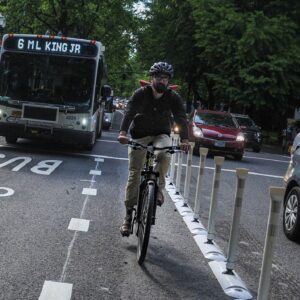
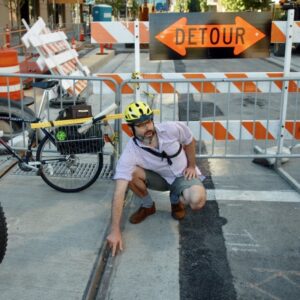
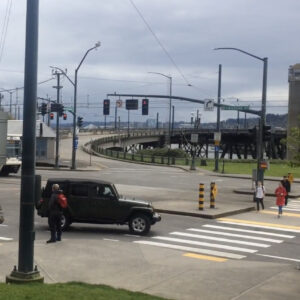
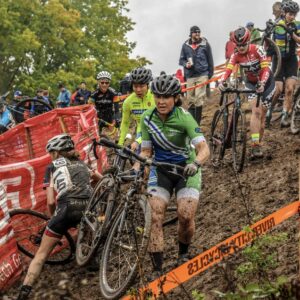
Thanks for reading.
BikePortland has served this community with independent community journalism since 2005. We rely on subscriptions from readers like you to survive. Your financial support is vital in keeping this valuable resource alive and well.
Please subscribe today to strengthen and expand our work.
thanks!
You and each of the people you interviewed are appreciated. The world is a better place because of you. Thank you.
Thank you for this! And thank you to all of the activists for the work that you do.
To paraphrase the writer and environmentalist Edward Abbey,
“One final paragraph of advice: do not burn yourselves out. Be as I am – a reluctant enthusiast….a part-time crusader, a half-hearted fanatic. Save the other half of yourselves and your lives for pleasure and adventure. It is not enough to fight for the land; it is even more important to enjoy it. While you can. While it’s still here. So get out there and hunt and fish and mess around with your friends, ramble out yonder and explore the forests, climb the mountains, bag the peaks, run the rivers, breathe deep of that yet sweet and lucid air, sit quietly for a while and contemplate the precious stillness, the lovely, mysterious, and awesome space. Enjoy yourselves, keep your brain in your head and your head firmly attached to the body, the body active and alive, and I promise you this much; I promise you this one sweet victory over our enemies, over those desk-bound men and women with their hearts in a safe deposit box, and their eyes hypnotized by desk calculators. I promise you this; You will outlive them*.”
― Edward Abbey
* word changed to meet blog standards
Haha, love this!
***This comment was deleted because it was rude and had no point other than to be mean. – Jonathan***
Thanks for the kind words! This was a tough piece to write because it’s a very personal issue for me. I’m so grateful to the folks who shared their experiences and tips!
Thank you for writing this Emily. You’re more courageous than I am. I have definitely suffered from/am suffering from burnout but it’s hard to talk about publicly because of the role I have in the community. I sometimes don’t want people to know about my struggles because of how they might perceive BikePortland as a result. My energy and strength and outlook has changed so dramatically from when I first started as a wide-eyed and optimistic advocate 14 years ago. These changes weigh on me a lot these days. I still love this work and believe in it; but things are just so different now! It’s complicated.
Ironically, even though you are feeling some burnout yourself, it’s actually new people coming into the scene like you/BikeLoud a few years ago that keep me excited and motivated. Thanks again for all your work in the community — and for writing on BikePortland.
Oh, I totally understand that! When you’re seen as the “face” of something, it’s hard to admit you are in fact human and need breaks. That’s part of the reason I wanted to write this column, to show that burnout happens to all sorts of advocates and it’s not weak to admit it.
I feel like BP should re-run this article once a year. What a rockstar lineup of interviewees. Thank you, Emily – for this piece and for all you do.
I really second the work that adrienne marie brown has done regarding pleasure activism. That’s it is an act of resistance and greater strength to work from a place of joy and pleasure than anger and despair. Burnout still happens, but the work itself is so much easier if you relish and embrace the joy than focusing on the despair.
Great topic and panel. I am forwarding this article to several of my favourite transportation advocates in Vancouver so they can get a second (or fifth) boost of mental energy as the CoV fails to deliver several generational complete streets projects on the westside…first McLoughlin and now Columbia, etc. I fear… [and may even formally back away from the council adopted policy for complete streets, I fear 2x].
Steph, I love the murder mystery line. Doug, it’s been 20 years – only feels like 30. 🙁
Emily, Great article! Thanks for the compellation from many whom inspire us to keep showing up.
Personally I find travel help on my burnout recovery. Travel locally to places that are worse off (or better), by bike and/or train. Travel further to explore the world a bit. I try to visit one new city every year that I’ve never been to. It’s relaxing and inspiring, at least for me.
The important part of delegating is to let go of the project, let it drift a bit, let others take charge and change it.
David: Yes, actually. We took a month to go to Belgium and Netherlands, and I took a zillion pictures of 1890s to 1910 – era urban buildings (5-6 story, right to front property line, with ground floor residential, and small rear yards) and how that actually works in Amsterdam, for instance, or in smaller Gent. Was an inspiration, some of which I applied to code advocacy here.
And Aloha Doug…this article made me think back to those 90s, when I loved your pen ink drawings of pedestrian friendly intersections (via my hardcopy PDOT Ped plan etc.) and borrowed them as teaching aids for our Honolulu street design discussions…back before the web was filled with such resources. Nice to know the backstory of how you got into it all and when you are doing now.
Doug, I love Gent, been there 3 times. A real mix of old and new, a wonderful university and government town, lots of students. Lovely medieval churches, a nasty-looking central castle (Nobody expects the inquisition!), and even a few canals. A more “real” town than nearby Brugge/Bruges. I’m glad you visited it.
Wow, this article/ interview was great and so needed! Very relatable from my experience organizing and advocating in Milwaukie. Thank you.
Thank you to the advocates who are making change happen and inspiring others to walk in your footsteps.